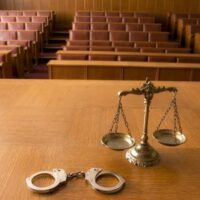Obscure Evidence Rules in Florida Domestic Violence Injunction Hearings

All kinds of rules apply to evidence in domestic violence injunction hearings in Fort Lauderdale. Whether you’re trying to obtain a domestic violence injunction or you’re hoping to avoid one, it makes sense to understand these evidence rules. While some are fairly straightforward, others are relatively obscure. Although many people might not be aware of these rules, they may offer certain opportunities for both petitioners and respondents in Fort Lauderdale.
The Clergy-Parishioner Privilege
You may have heard of attorney-client privilege, and perhaps you have heard of the spouse privilege. But have you heard of clergy-parishioner privilege? This states that any communication with a clergy member is strictly confidential, and that it cannot be revealed during a domestic violence injunction hearing.
For example, someone accused of domestic violence may have admitted to beating their spouse during a meeting with a clergy member. Perhaps these admissions occurred during “confession” at a Catholic church. Such communications can never be revealed in court, and clergy members cannot be forced to recount what they heard.
Battered Spouse Syndrome
Also known simply as “BSS,” battered spouse syndrome is a legitimate psychological disorder and a potential defense strategy for those accused of domestic violence in Florida. Essentially, a spouse can theoretically avoid all consequences associated with an alleged domestic violence incident if they can show it was caused by BSS.
The logic here is that they had no control over their own actions – and they were essentially subject to uncontrollable urges stirred up by their psychological disorder. To explore this defense strategy, a spouse usually needs to enlist the help of a psychological expert. This psychological expert generally examines the spouse before testifying on their findings during the hearing.
Excited Utterances and Spontaneous Statements
Due to the private, intimate nature of domestic violence behind closed doors, hearsay is a common issue in injunction hearings. Florida courts have established a number of acceptable exceptions to the hearsay rule. Two of the most notable exceptions include “excited utterances” and “spontaneous statements.”
A spontaneous statement is made during or after the alleged domestic violence incident. Florida courts have established that the spontaneous nature of these statements makes it unlikely that the individual has spent any time engaging in “reflective thought.” This makes the statement more trustworthy.
In the same light, an “excited utterance” occurs when an alleged victim is experiencing the stress of domestic violence. Such statements may be admitted as evidence despite hearsay rules, as long as they were caused by a sufficiently “startling” event. In addition, these statements must occur so quickly after the incident that there is insufficient time to “contrive or misrepresent.”
Find an Experienced Domestic Violence Injunction Lawyer in Fort Lauderdale
To learn more about evidence standards and rules for domestic violence injunctions, you might want to consult with a qualified Fort Lauderdale domestic violence injunction attorney. While an online article can shed light on some of the more obscure rules, it cannot provide you with a strategy tailored to your specific needs. For this, you will need to speak directly with a lawyer during a consultation. Choose Haber Blank today to get started.
Source:
flcourts.gov/content/download/864657/file/DV%20Evidence%20Outline%202023.pdf
